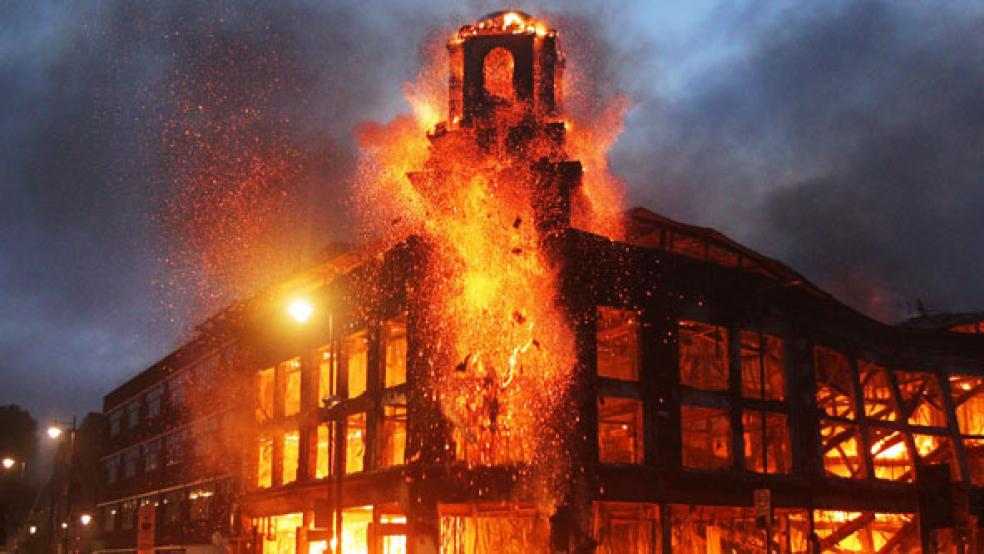London is starting to look at lot like Athens did a few weeks ago—and so are Birmingham, Manchester, Liverpool, and other British cities with large populations of underprivileged urbanites, white and minority alike. And it is no coincidence. These are the people who are hit first, hardest, and longest by the kind of austerity measures Prime Minister David Cameron has committed the nation to, even as evidence mounts that the most drastic cutbacks in postwar British history are harming many and helping the economy not at all.
True enough, the violence that erupted in north London last weekend was prompted by the shooting of a local man the police believed to be active in the gang scene. But you can’t blame the violent protests that ensued nationwide over the next several days entirely on thugs and criminals. This is about economic policy-- the same one going into effect across Europe and in the U.S.
We cannot say, months down the road we have chosen that we were not warned by someone other than Paul Krugman, that lonely liberal voice on the New York Times op-ed page. The British have now warned us, too. And the message is that policymakers on both sides of the Atlantic have the wrong end of the stick. This is a spend-to-stimulate moment, a Keynesian moment; austerity without polocies that spur demand and ameliorate its negative effects on ordinary people are not merely incomplete: They will lead—as now we see on our front pages—to violent backlashes.
W.H. Auden, the noted British poet, once referred to the 1930s as a “low, dishonest decade,” one that produced “waves of anger and fear.” It was 1939, on the eve of a great calamity. It begins to look as if we are living a variant of the same moment: denial all around us, the freight train of disaster—not war this time, but depression and deprivation—speeding toward us through the tunnel.
A week before the latest round of demonstrations in Britain, Cameron’s finance secretary, Chancellor of the Exchequer George Osborne, vowed to stay the course even in the face of the grimmest economic report of the past year: The British economy grew by 0.2 percent in the second quarter of 2011. This means it is not growing at all, and Osborne’s impudent response was to declare, “Our economy is stable.” It is a little like saying, “Don’t worry, the hurricane outside is not moving.”
Policymakers, legislators, presidents, and prime ministers must stop pretending that decisions rooted in ideological belief are rational ways out of our crises. In the 1980s, privatization was the cure-all elixir; the 1990s gave us “deregulate everything” and the cult of the CEO. Now it is austerity and budgets in perfect balance—government as household. In no case have ideology and faith proven substitutes for good, detached economic and social thinking. And this time—check the videos and news photos from Britain—we are playing with fire.






